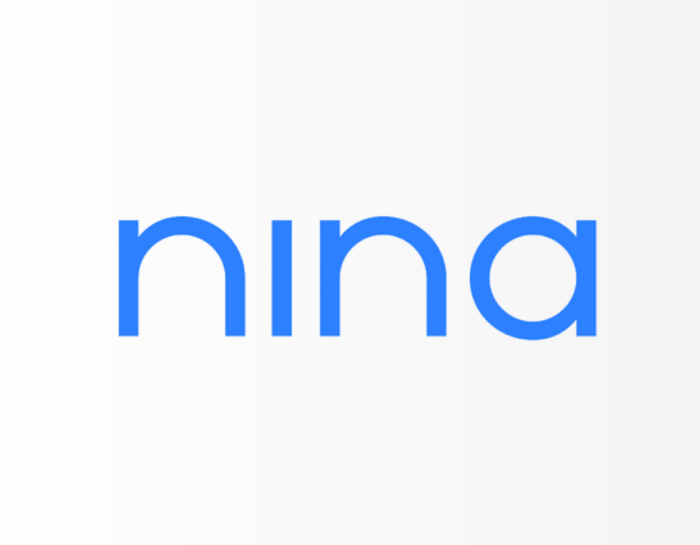
Reservoir’s Rell Lafargue Discusses Recording Catalog Acquisitions, Copyright Investments, and Global Expansion
Merlin’s Executive Interview Series is a monthly series featuring executives from across Merlin’s dynamic and diverse worldwide membership, discussing some of the most pressing topics, developments, and innovations in independent music today. This month’s piece features Rell Lafargue, President and COO of Reservoir.
Reservoir Media made headlines with the acquisition of Tommy Boy Records and the subsequent attention to De La Soul’s discography. What drew Reservoir to this particular acquisition, and how does it align with your company’s larger strategy?
Hip-hop has been a priority at Reservoir since day one. It’s always been a genre that we focused on, as we recognize its cultural importance as well as its commercial value and crossover potential, especially as streaming was building as a format. Acquiring Tommy Boy Music was a powerful moment for us to showcase Reservoir’s continued strength in the genre, and also grow our label platform to complement our existing business. Tommy Boy joined Chrysalis Records, augmenting Reservoir’s recorded music division and building on the company’s commitment to upholding legacies and supporting great independent music. With the addition of Tommy Boy, Reservoir stands as a pillar of some of the most important hip-hop in the world, and specifically indie hip-hop at that.
Before we acquired Tommy Boy, our team identified the potential opportunity to help De La Soul cement their musical legacy. We then worked closely with the group to bring their back catalog to streaming services for the first time ever. We were proud to make good on our promises to the guys and to execute on the plans we formed together with the group. These efforts also further demonstrated the strength of Reservoir’s services representing and advocating for hip-hop artists, particularly in the independent space.
Given that not many independents are making acquisitions at the level Reservoir is, what do you believe this signals for the broader independent music sector? How can other independent entities leverage such acquisitions?
Reservoir’s recent acquisitions, particularly of such influential indie labels as Tommy Boy and Chrysalis, should signal to all indies that there is in fact long term value in well curated, high-quality music, even if it’s not mainstream or distributed by a major.
In addition, streaming today provides indies low-cost distribution with the potential for global reach. This opportunity is especially ripe as some parts of the world are just coming online and global streaming users are on the rise. This growth is something we all need to leverage to reach fans with the best music possible, not just domestically but also around the world.
How do you foresee the role of independents evolving in the music industry, especially with conglomerates and large asset managers showing growing interest in music copyrights?
With all of the recent investment coming into the industry, there has never been a more competitive time for acquisitions. But thankfully, that competition also means there are plenty of rights holders looking to make deals. Our pipeline is as healthy as it’s ever been, which affords us the opportunity to be very selective as to what new music we bring into the company.
Independents are well positioned today to land deals that historically may have gone to majors or pure financial players. Unlike many acquisitive players out there, we aren’t in business to buy catalogs as purely a financial investment. Instead, we are committed to buying great music and adding value through our platform and marketing capabilities. We are committed to being fierce stewards for the music and artist legacies. So many sellers want good caretakers for their music just as much as they want the biggest check – these are the types of deals where Reservoir continues to be well-positioned and most competitive.
Reservoir has its roots in songwriting copyright investments, but now you’re also managing recording copyrights. How does Reservoir’s approach differ when managing these two types of copyrights?
We have been active in signing songwriters and acquiring catalogs for 16 years now at a steady and measured pace. But Reservoir has also successfully diversified the rights we represent and the companies that sit under the Reservoir umbrella, enabling us to have key touchpoints across publishing, recorded music, and management. In particular, we have continuously grown our recorded music investments with acquisitions of powerhouse indie labels like Chrysalis Records and Tommy Boy Music.
Across all facets of our business, the overarching approach is the same. We work to add value to our assets – whether it is the publishing rights of a composition or a recorded track or even an artist we manage – by our active platform of digital licensing, synch placements, marketing, and through better collections and infrastructure.
That said, the exact approach to adding value can be nuanced depending on what rights we represent or the talent we manage. For example, on the publishing side, we have opportunities for covers and using the compositions in different ways, while we can also do creative licenses with lyrics, as well. On the recorded music side, we have more opportunities to directly market the artists and recordings to consumers, like how we released De La Soul’s back catalog on streaming and created a direct-to-consumer website for physical product and merch. We apply a bespoke approach to each catalog to find distinct ways of adding value.
Looking forward, what are Reservoir’s aspirations in the realm of acquisitions and expansion? Are there specific markets, genres, eras, or styles of music you’re keen to explore?
We continue to acquire based on quality. We want to work with the highest quality music, people, and companies, regardless of market, genre, or era, and I don’t see that changing any time soon.
However, Reservoir’s strategic expansion within emerging markets continues to be one of our biggest areas of focus. We feel we have not only an economic opportunity by tapping into these markets, but also a cultural responsibility to help facilitate the movement of music from East to West. Through our U.A.E.-based company PopArabia, we have a physical presence in the MENA region and an active platform that is signing and developing high-quality talent and acquiring recorded music rights across the region. Additionally, our strong presence in emerging markets gives us a competitive advantage as these territories continue to grow. We have a well-positioned team on the ground who facilitate fantastic deals and help to increase our presence and efforts in the region.
Given the digitization of music and the rise of streaming platforms, how does Reservoir plan to innovate and adapt its strategy, especially in the context of serving both artists and fans? What role will Merlin play in this?
Independent companies like ours are poised to offer our artists the best of both worlds: the support and focused dedication of a small team with the resources and network of an established music company. We are able to stay nimble and efficiently execute on our creative strategy, and we provide bespoke and high-touch services for our roster, meeting all needs wherever they are in their career. Our team brings access to key industry resources and long-standing relationships that enable us to set our roster up for success, such as assisting developing artists in identifying new opportunities for growth, providing unique promotion for our catalogs and creators to the public and our stakeholders, and securing licensing opportunities to enhance the financial and cultural value of our music. We are also meeting fans where they are and have expanded our offerings in physical product, merch, and other D2C goods.
Reservoir also has a seat at the table at some of the most important trade organizations, enabling us to advocate for creators’ rights across the industry, affecting change and legislation globally. This includes many ongoing conversations about equitable deals between labels, publishers, and DSPs. Merlin supports independent companies like Reservoir and our labels Chrysalis Records and Tommy Boy Music by leveling the playing field. It provides access to global licensing deals and distribution channels and effectively acts as a catalyst to save us time and resources. We also benefit from Merlin offerings such as promotional opportunities and beta programs which bring additional value. Merlin plays an important role in Reservoir’s success and we expect this to continue as we grow and expand.


